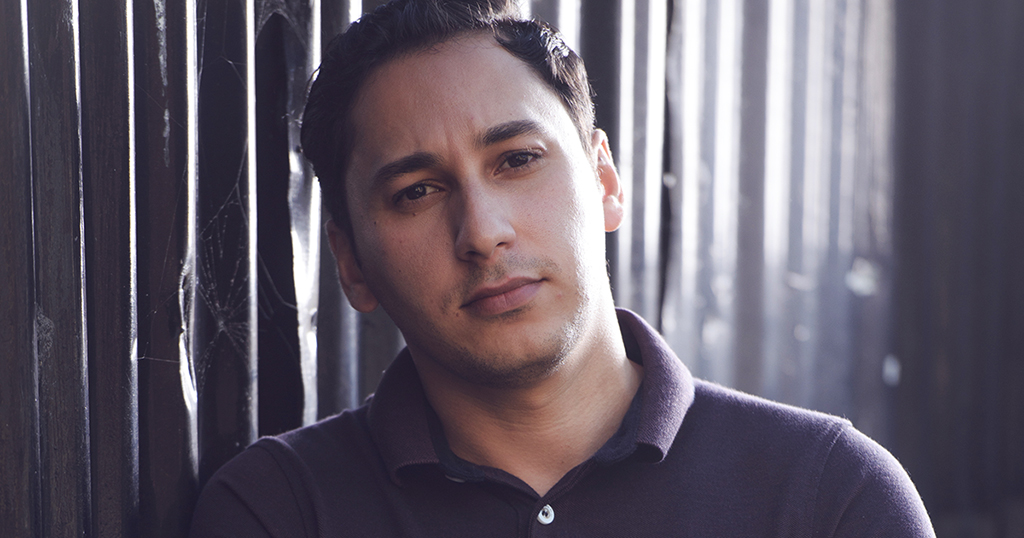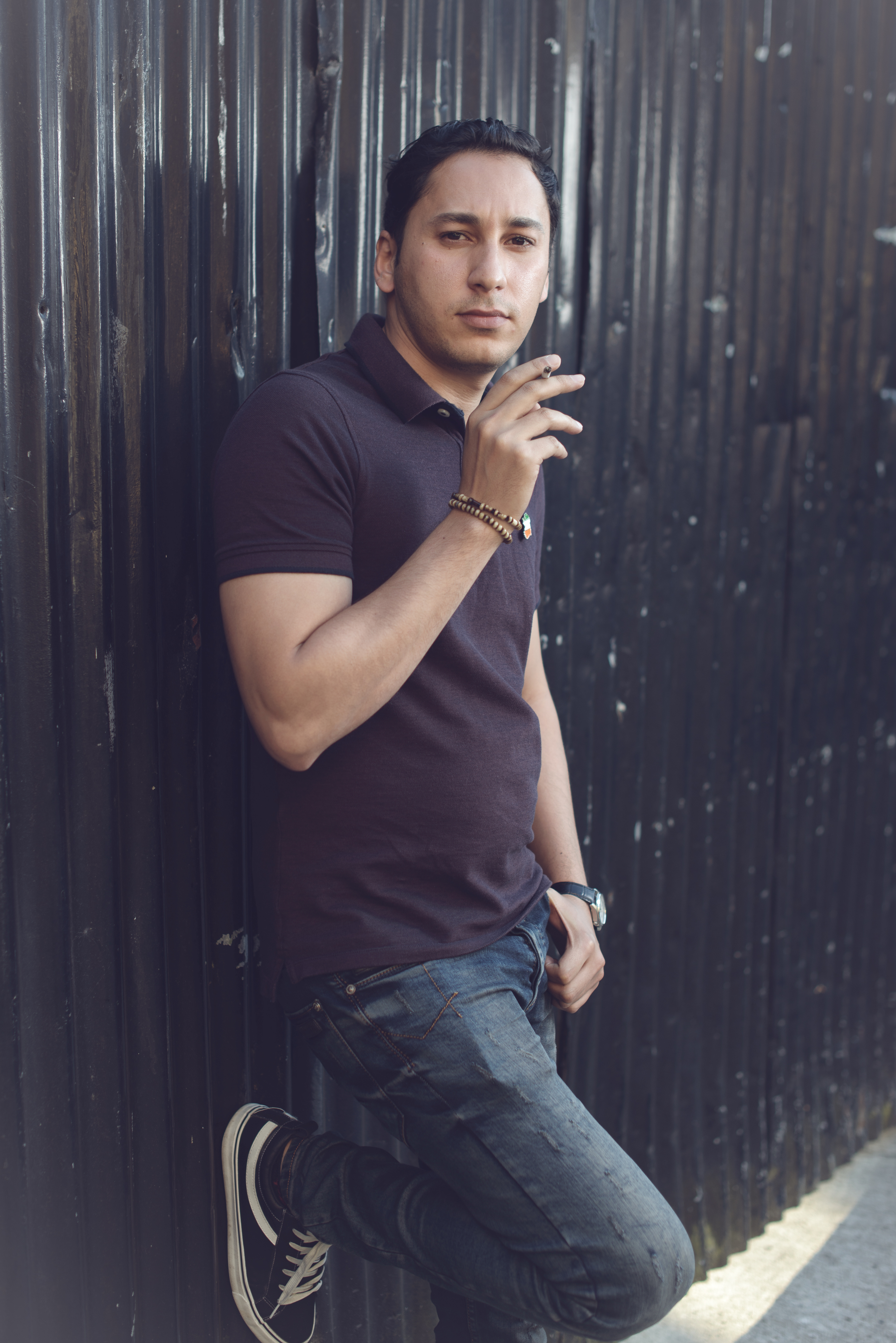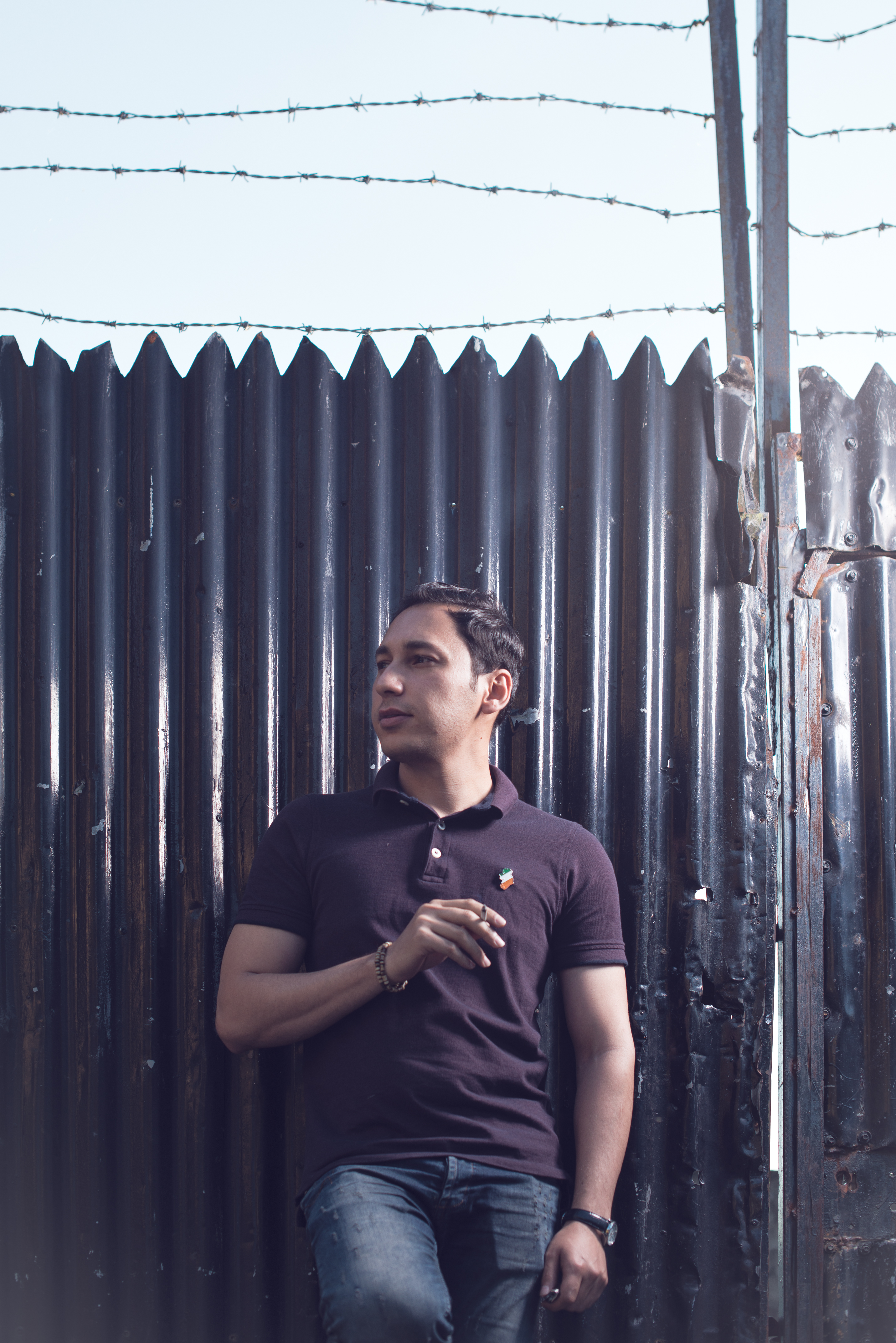“When you live in a society where who you love can result in you being condemned to death, it is something that is never far from your mind.”
‘You are not alone,’ that was our motto.” So says Sinan Shwaili, who before coming to Ireland was a member of a small group of young LGBT+ activists in Iraq, where to be openly gay is life-threatening. “Our group was created so that we could reach out and support others by providing advice and guidance in what it means to be LGBT.”
Sinan worked for Austrian Airlines at Baghdad International Airport, and on the surface, he had a happy, successful life. “It was a good job and it was something I’d wanted to do for many years. Because it was at an international airport, US coalition forces were present every day. The danger, however, did not come from them but from the mafia gangs who would pose as army and police forces. If they suspected you of being homosexual, you would be indiscriminately killed.”
In a society dominated by political parties devoted to the discrimination of anything even close to gay rights, these tribal mafia gangs operate under the guise of law. All the gangs have their own agendas, but all of them have an equal hatred of LGBT+ people.
“There was always the constant threat and fear of being discovered,” says Sinan. “When you live in a society where who you love can result in you being condemned to death, it is something that is never far from your mind.”
Last year, during the month of Ramadan, the LGBT+ group Sinan was a member of decided to secretly distribute posters on the streets of Baghdad at night.
“We wanted the posters to help other LGBT people, who may be afraid and hiding, know they were not alone,” Sinan explains.
The group agreed to meet up the day after the posters were distributed, to gauge what the response in Iraqi society had been.
“It soon became clear the reaction was worse than any of us could have ever feared. Surveillance cameras scattered throughout the streets had taken pictures of us distributing the posters.”
On the morning of June 20, 2017, Sinan woke to find a letter pinned to his front door, containing the names of every member of the group. Written by a violent extremist religious criminal mafia gang in the area, the letter ordered all the named people to give themselves up within four days or “face the punishment of Allah upon you”, in other words, their deaths.
In Hiding
“The danger was not only to the members but also to our families,” says Sinan. “In Iraq, homosexuality is considered to be both against civil and religious law. Therefore it brings shame to everyone connected to it. Many gay people have been killed by their own families. My close friend and fellow group member Yani [not his real name] and I were both thrown out of our homes by our parents.”
Sinan and Yani fled to a hotel to hide from the mafia gang. “We lived in moments of love, laughter and weeping, awaiting our fate. We tried to search for a place to hide on a more long-term basis. Information slowly came to us from online and texts that some other members of the group, like us, had gone into hiding. Others had not been so lucky and had been killed.
“We received messages on my cell phone threatening our deaths. We felt the net was closing in on us. Local police and gangs were searching for us and our faces were now known throughout the city.
“Yani had a friend who was secretly gay and working in the airport police. He said he might be able to help us get out of Iraq if we could make it from our hotel to the airport. This would not be easy, as there were several police checkpoints between the two locations.”
A few more days passed with Sinan and Yani still confined to their hotel room, too afraid to open the door, receiving constant death threats by text. If they surrendered, they knew they would be tortured and possibly killed. If they were found hiding or trying to leave the country, they would face the same fate.
Yani decided to return to the barbershop he owned so that he could gather together some money to travel. “His barbershop was relatively near and he felt sure he could get there and back without being discovered,” Sinan explains. “We agreed that we would telephone each other at a certain time if he had not heard from me nor I from him. As he left the room, my heart felt like it was going to explode.
“One hour past, then two, then three and still Yani had not been in contact with me. I tried to ring him but there was no answer. I tried over and over again but with no luck. Something was wrong; I knew it in my heart.
“In a moment of terror, I ran from the hotel and left all my belongings behind. I rushed out into the busy streets of Baghdad, into oncoming traffic, running like crazy to get a taxi. I had to try to get to the airport. I rang Yani’s friend, who worked there. I begged him for his help and explained how Yani had vanished. He was able to help me pass through the checkpoints and make it safely to the airport.”
Never So Terrified
Because Sinan did not have a flight booked, he had to go on standby. In Iraq you cannot enter the airport itself unless you have a travel card informing police that you are travelling on that day, so Sinan had to wait out in the open for two days and nights before he got a flight.
“I have never been so terrified in my life. Police and armed security were everywhere and I felt sure if I was in an open area, I would be caught.”
Hiding in a corner, praying he would not be noticed, Sinan saw a local news report flash up on the screen of a nearby television. A well-known Iraqi male model had been found dead.
“What was not reported was that he was a member of our LGBT group and his name had appeared on the letter pinned to our doors. I felt the tears run down my face at the loss of my friend. I knew some people at the airport must have seen this, but there was nothing I could do at that moment to control my emotions.”
Hoping for a moment of peace, Sinan called his mother. “When she answered, her voice had a tone of urgency in it, mixed with fear. She told me I needed to leave Iraq immediately. Then came the news that made my world fall apart, my dear friend Yani had been tortured and killed. When he returned to his barbershop from the hotel, Mafia gangs had been waiting for him. As far as I knew, I was possibly the last member of my LGBT group alive.”
Sinan called Yani’s friend and he was able to arrange the travel cards needed to enter the airport for him to get a flight, but he still needed to be able to get through the passport checks, which were staffed by armed airport police.
“As I approached passport control, so did a large group of travellers, all in a rush and needing to get through as quickly as possible. When the officer took my passport I tried to remain calm and look relaxed, even though I was screaming inside. After what seemed like hours, but was just minutes, he handed me my passport and waved me through. I couldn’t believe it. I turned and walked towards my plane.”
Sinan flew to Oman, where his brother lived, but it was not a good reunion. “My brother informed me that my uncle had vowed to kill me. Knowing my uncle and the links he had within the Arab world, it was a threat I took very seriously.”
Sinan’s brother told him that their parents had approved of his murder, and then he beat him. “He gave me two choices. I would enter into an arranged marriage or I would leave and never contact my family again. I told him I could not do as he asked. I had risked my life to leave Iraq and could not just now simply return to live a lie. Those were the last words I ever spoke to my brother. He ordered me from his house and vowed to never speak to me again.”
My Only Option
Living in a one-bed flat, Sinan Shwaili found work with a sales company he had worked for before, which had offices in Oman. His manager informed him that he was arranging sales contracts in Europe and would be setting up meetings in Germany and Ireland. It would be a quick trip, just a few days to each location before returning to Oman. Then he received a phone call from his manager, asking him to come to the office.
“I assumed it was just more details of the business trip, but instead my manager informed me that the Iraqi embassy, along with the police, had posted my photos on social media. Images of me were now widespread online throughout the Middle East.
“My working trip to Europe was cancelled and I was also fired with immediate effect. I was given ten days to settle my affairs in Oman and leave. After that, my manager would contact the police and inform them of my whereabouts.
“Threats started to begin again by text to my phone. I was gay and unemployed, without any family and few friends or a safe place to go. It was becoming impossible to see how my life could continue. Just then I realised I still had in my possession the approved travel visa for Germany and Ireland. It was my only option.
“I didn’t know a lot about Ireland but I had been told the people were nice. It seemed a world away from where I was, and at that moment in my life that’s just what I needed. I arrived In Dublin on January 23 this year with just a short working visa. I had to try to find safety for myself, so I decided to seek asylum.”
Having been processed as an asylum seeker, Sinan Shwaili was eventually placed in a Direct Provision centre in Kerry, in a large house that used to be a B&B, along with 59 other men.
“It became clear that just because someone might be fleeing persecution in their home country, it does not mean that they are not willing to harass or bully others based on beliefs in their country. When you grow up in these cultures, you know the moment you look into someone’s eyes, the hate and anger they feel towards you. Sadly, to them, it seems I am not a fellow asylum seeker.
“I face harassment and isolation every day. I try to spend as much time outside as I can, as the atmosphere within the room I share with four other men is so filled with tension and anger, it can be frightening.
“I have an Irish boyfriend now, called Keith. He’s very protective of me and tells me that it’s something he didn’t think could still happen in Ireland in 2018. We both hope that one day soon my application will be successful and I can be with him in Dublin, that we can be together as a normal, everyday couple, enjoying each other’s company.
“I hope that one day soon I will not have to be surrounded by the fear and hate that I have lived with now for so long.”
This is the second of a series of interviews with LGBT asylum seekers in Ireland. Read Russian asylum seeker, Evgeny Shtorn’s story here.
© 2018 GCN (Gay Community News). All rights reserved.
Support GCN
GCN is a free, vital resource for Ireland’s LGBTQ+ community since 1988.
GCN is a trading name of National LGBT Federation CLG, a registered charity - Charity Number: 20034580.
GCN relies on the generous support of the community and allies to sustain the crucial work that we do. Producing GCN is costly, and, in an industry which has been hugely impacted by rising costs, we need your support to help sustain and grow this vital resource.
Supporting GCN for as little as €1.99 per month will help us continue our work as Ireland’s free, independent LGBTQ+ media.



